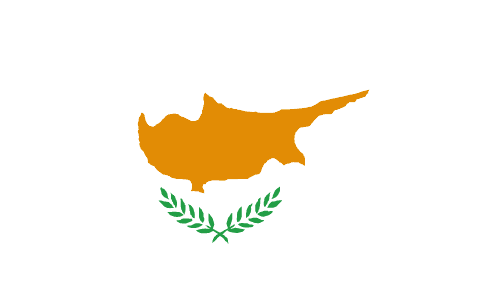
Will Turkey support and Cypriot Turks be expected to reintegrate into a unified Cyprus if the Kremlin is handed even a bigger role in the economic future of the Island and the exploitation of its natural gas reserves? The recent financial crisis has not infected the part of Cyprus under the control of Turkish Cypriots and effectively defended by Ankara. Now that an EU-backed bailout has been voted down by their Parliament, Greek Cypriot leaders have turned to another more recent patron, Russia, for help and in return are offering ever closer economic and political links to Moscow. The crisis has been largely linked to the excesses of a Greek Cypriot leadership which effectively turned their part of the island into a steroid-inflated banking center that many accuse of being a favored money laundering hub for Russians and other Europeans of questionable business practices. (In fairness, it seems Cypriot banks are favored by both legitimate and otherwise enterprises/individuals). Already during the ex-Yugoslavia wars of the 1990s, Cyprus was suspected as the safe haven for ill-gotten gains of Radovan Karadžić and Slobodan Milošević's family.
Steroid Banking System & Money Laundering as Business Model?
In the more recent past, Cypriot banks paid well above market rates on large out-of-country deposits while projecting European Union security and the stability of the Euro currency. There are other banking havens in Europe but perhaps their investments and business model are managed more prudently. The funds then were in significant part invested in Greek Government bonds. When Greece slumped financially and its bonds were cut in value, Cypriot banks were also dragged down. Most Greek Cypriots did not benefit from this financial loop and are now innocent victims at risk of losing some or all of their bank savings.
Serial Failures at Reunification:
Turkish Cypriots could only see this more than cozy relationship between Cypriot banks and Greek Government bonds with suspicion. The 1970s invasion of the northern part of the island by Turkey was presumably triggered by the scheme of the then-Greek Cypriot leadership to join Greece and abandon the Island's delicate independence and communal balance. Now almost four decades later and through a serial set of UN, U.S., and European-backed negotiations, (most notably a plan accepted and then rejected by Greek Cypriots as sharing too much power with the Turkish Cypriots), the opportunity for reunification appears as distant as ever. From U.S. Envoy Richard Holbrooke to the current UN Secretary-General, the talks appear to always snag. The latest round of talks fell through a year earlier. In the meantime, UN-mandated peacekeepers maintain a delicate peace and division line.
Ankara & Athens as Rivals & NATO Partners:
Ankara and Athens are perceived as rivals. Contending claims in the Aegean have roused sparks, but Cyprus has been perceived as most contentious. Nonetheless, Turkey and Greece are NATO partners and until recently managed to contain suspicions and outward symptoms of hostilities. Earthquake disasters in both countries had actually brought about a swell of sympathy and mutual humanitarian support between the countries and peoples. However, Russia presents a whole different challenge.
Turkey & Russia as Historical Rivals:
Turkey and Russia have been historical rivals/adversaries. Turkey was NATO's southern flank containing the Soviet Union and continues to serve as military base for the Alliance, U.S. and Europe. Turkey has been a competing pole to Moscow for economic and political links to Turkic-speaking peoples until recently dominated by the Soviet Union. For the U.S., Turkey has become favored as a transit route for Middle East and Caspian oil/gas, in order to avoid unstable regimes such as Iran and Russia. While Russia and Turkey have enhanced economic cooperation, trade, tourism and investments, old rivalries continue especially as Greek Cypriots call upon the shared Orthodox Christian religion as a bond with the Russians, an old rallying cry employed against the mostly Muslim Ottomans/Turks over the last few centuries. Mixing religion and politics has always been a dangerous brew, but add money to the mix and it becomes an intoxicating rationalization for loss of common sense, civility and equity.
Cyprus Natural Gas as Europe Savior & Threat to Moscow Domination?
Add natural gas to this brew. Moscow wants to control the potential exploration and exploitation of what are believed to be Cyprus' substantial reserves but also to maintain its stranglehold on much of Europe as its dominant supplier. Such position has in the recent past been exploited by Moscow for political and economic gain, (particularly with respect to Ukraine and other central/eastern European states.)
Divisive & Unstable Business Model?
From this perspective, Europe and the U.S. share a common purpose with Turkey and the Turkish Cypriot community in minimizing Moscow's control. The Kremlin may even demand special port rights for any bailout for its navy from this ostensibly NATO partner. The divide across the island now also grows bigger and suspicions only mount. Turkish Cypriots can only be made more uncomfortable with the current projections of economic partnership and religious bonds between Greek Cypriot leaders and Russia. The influence and impact of Russian money on Cyprus and its banks has been less than a blessing. Still, Greek Cypriot leaders want to maintain their "business model" as bank haven for Russian money. Beyond the religious/ethnic divide, the vision of the economic and political future of Cyprus appears to be fundamentally divergent; and thus the last opportunity for mutual reconciliation may fly away with Greek Cypriot leaders heading to Moscow for "bailout."

